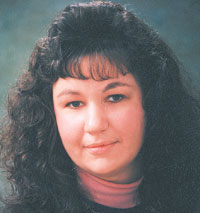Can Homeschooling Save Your Child's Health?
By Lisa Yoder
Printed in Practical Homeschooling #21, 1998.
 Lisa Yoder shares true stories of how some families have saved their children's health... and educations.
Lisa Yoder shares true stories of how some families have saved their children's health... and educations.

|
 |
 As Christopher James* lay in the emergency waiting room of the local hospital, doctors suspected spinal meningitis. But when the test came back negative, they realized it was instead a migraine headache - one so severe he required intravenous fluids because of his extreme dehydration. It was then that Christopher's mom, Kim*, realized just how drastic his problems with school were.
As Christopher James* lay in the emergency waiting room of the local hospital, doctors suspected spinal meningitis. But when the test came back negative, they realized it was instead a migraine headache - one so severe he required intravenous fluids because of his extreme dehydration. It was then that Christopher's mom, Kim*, realized just how drastic his problems with school were.
Kim is not alone. In our small county alone, this author knows of three other children so emotionally stressed by traditional school they literally cannot function there. One young man was throwing up routinely every morning before going off on the school bus. Another girl became so withdrawn it made her intensely nervous just to be in the presence of people at a mall or church.
There are other children, too; ones with asthma and allergies so severe they were missing more school than they attended. Children in wheelchairs, and those who cannot keep up with other children physically without turning blue from lack of oxygen.
For many of theses families, the health problem was not the main motivation to begin homeschooling, but they have found the lifestyle to indeed be a tremendous advantage to their children's well-being.
Kim, the mom we met above, never wanted to be a homeschooler. But when Chris experienced weeks of headaches, illnesses, and crying spells brought on mostly by a conflict with another first-grade student in the class, she knew her child was not emotionally strong enough to deal with the stress. Teachers and administrators refused to cooperate, only stating that she was obviously an over-protective mother who "needs to let go."
"I saw my child literally withering away," she says. "I knew I had to do something to get back my bright, outgoing son. At that time, I did a lot of research and investigation of homeschooling."
It was the day in the hospital that finalized the decision.
As soon as they notified the school, the teachers and principal began calling with zeal, telling Kim how much they wanted to "help." But, it was too late - the decision was made. Christopher would be homeschooled.
Healthy Homeschool Eating
For the moms I spoke with, after lack of stress, controlling diet was the next most important factor concerning their children's health.
Connie Hershberger has three daughters, each more allergic than the previous sister. Committed to being a homeschooler long before health problems became difficult, she has nonetheless found homeschooling to be a real boon for maintaining her children's health.
The early school years with holiday party treats and birthday handouts would have been a real nightmare for Connie. At home, however, they have been on wheat, dairy, and artificial color-free diets so long it is routine.
Diet has been a significant factor in the Stahl household as well. As a quadriplegic, Crisi is much more susceptible to infections and viruses; a healthy diet keeps her immune system up and body functioning normally.
Conducive Environments
Like diet control, environmental factors are significant for many families.
"One daughter was so allergic to soap that if I touched her while I was doing dishes or picked her up without realizing I still had some type of residue on my hands, she would have fingerprints on her skin from the allergic reaction," Connie explains. "I had to dress her carefully with tights, long-sleeve cotton shirts and prairie dresses because she often looked so awful. At one time, she had five forms of eczema breaking out."
Of the 13 common environmental allergy producers in the region, middle daughter, Janelle, is allergic to 12 of them. The Hershbergers have meticulously remodeled their home to make it as allergy-free as possible. It is difficult to say how the girls may react to the carpet, wall-paper, and chemical fumes in a school building.
Flexibility, Flexibility
It was schedule flexibility that originally motivated the Stahl family to begin homeschooling over 14 years ago. "Jack was traveling in a gospel quartet and the children and I went along," Barbi explains.
Besides flexibility for ministry, Barbi noted the importance of one-on-one instruction, character training, and true knowledge that does not "puff up" but contributes to Godly wisdom as motivations to homeschool.
In their ninth year of homeschooling, they had just made a major move, Jack was making a career change, and baby number five had just come along. In that year, on January eighteenth, second daughter Crisi had a snow sledding accident that resulted in a spinal cord injury. Four years later, Barbi is just beginning to feel the family has finally learned to "live this new life."
Although a quadriplegic, Crisi has made vast improvements over the years. She no longer requires a neck brace, she writes by supporting a pen in her hand and rotating her shoulders and, like all 16-year-olds, she is in the process of obtaining her driver's license.
"With homeschooling, I can make the therapy schedule we need," Crisi explains.
"We rely on people from different locations, so flexibility in schedule is a must," adds Barbi.
"Crisi needs physical education that is productive, and her needs are always changing," explains Barbi. "Every time she makes an improvement, therapies change. We're in a constant state of flux."
Flexibility of schedule helped Ruthie Fletcher keep her oldest daughter at grade level. As a certified teacher herself, Ruthie feels quite certain Jessica would have been labeled learning disabled by a traditional school system. Yet she has been able to keep Jessica on track academically.
Jessica was dying from the moment she was born, because her heart is missing the left ventricle - the main heart pump. At five days old she had experimental surgery that, up until that time, no baby had ever survived.
Over the years have been more surgeries and severe bouts with bronchitis, croup, etc. As a toddler she experienced seizures that contributed to her learning difficulties.
However, with a homeschool schedule, an illness that would keep her from school three days to a week, only requires a day off at the most.
Other moms echoed this appreciation for flexibility. "Crisi recently had a terrible virus. We had her sit up in the recliner to keep her more comfortable. From there she could do at least some school," Barbi explained. "That would have been impossible in a traditional school."
The day I interviewed the Hershbergers, Janelle had been up most of the night with the recent onset of asthma. "There's no way I could have sent her off to school today. She would have been wiped out," Connie said. Instead, Janelle got the extra rest she needed in the morning and did a full day's work later.
Moms of children with average health agreed. Generally, unless a child is feeling so bad he needs to be in bed, school goes on uninterrupted in the homeschool households where flu, colds, sore throats, and respiratory colds have taken up residence.
Viruses, Viruses
Moms say their children get ill far less often at home. They cite diet, schedule, less stress and lack of exposure to children spreading germs as primary reasons.
Nicholas Anders* suffered chronic sinus disease, bronchial asthma, and episodical asthma - all brought on by simple colds. His immune system was so repressed he seemed to catch everything. Gym class was a problem. He nearly always got a chill from sweating that would hasten the onset of some new virus.
"He was on so much medicine, it scared me," mom Belinda* explained. "Yet he was so ill, he had to have it. And, the more he had, the worse off his immune system was."
"He couldn't play in the woods in the spring because he would develop horrible rashes," she noted. "He was much more confined to the house then."
On Nicholas's last day of public school over three years ago, he took his final dose of daily medicine. His immune system has built up tremendously, and he now spends days in the woods building forts and exploring the creek. "He's able to do all the things he always wanted to, but was always too sick - run the hills, ride his bike, explore the woods," notes Belinda with delight.
He has also jumped whole grade levels academically because he can keep up with his work. Lack of exposure to other's colds is by far the biggest advantage to homeschooling, according to Belinda.
The emotional stresses of peer pressure, hours of homework, and lack of enough relaxation contributes to low immune systems among schooled children, according to several of the moms.
Christopher, who had been so ill with migraine headaches, also suffered pneumonia, bronchitis, vicious colds, and asthma with increasing regularity. Now he plays street hockey, swims, and plays baseball with hardly ever a cold, much less asthma.
A Healthy Attitude
Today, Christopher is an outgoing young man with a healthy sense of self-confidence who is comfortable in all settings. "Our years of homeschooling instilled something in him that can't be matched," explains Kim.
Whether you have children who suffer from asthma, one in a wheelchair, or just a brood of normal robust children running about, take time to stop and consider the health homeschooling has brought to your home. Then rise up and praise the Lord for yet another blessing to "training up your children in the way they should go."
*These names have been changed to protect privacy.